
Deninta SC Injection
Manufacturer
Intas Pharmaceuticals Ltd
Salt Composition
Denosumab (60mg)
Key Information
Short Description
Deninta SC Injection is a medicine used to treat osteoporosis in postmenopausal women and in men at increased risk of fractures.
Dosage Form
Injection
Introduction
Deninta SC Injection is a medicine used in the treatment of osteoporosis in postmenopausal women and in men at increased risk of fractures. It makes the bones strong and reduce the risk of fractures.
Directions for Use
Your doctor or nurse will give you this medicine. Kindly do not self-administer.
Safety Information
Side Effects
No common side effects listed.
Alcohol Warning
Caution is advised when consuming alcohol with Deninta SC Injection. Please consult your doctor.
Breastfeeding Warning
Deninta SC Injection is probably unsafe to use during breastfeeding. Limited human data suggests that the drug may pass into the breastmilk and harm the baby.
Pregnancy Warning
Deninta SC Injection is highly unsafe to use during pregnancy. Seek your doctor's advice as studies on pregnant women and animals have shown significant harmful effects to the developing baby.
How it works
Deninta SC Injection is a monoclonal antibody. It binds to a protein that causes bone loss thereby strengthening the bone and minimizing the risk of fractures.
Quick Tips
Deninta SC Injection is a medication used to treat thinning of the bones (called osteoporosis). Take calcium and vitamin D to help build your bones when taking Deninta SC Injection. Do not take if you are pregnant or plan to become pregnant. May cause a rare problem of the jaw (osteonecrosis) mostly seen after a dental procedure. Tell your doctor if you develop sudden jaw pain. Deninta SC Injection may also increase the risk of infection. Avoid being close to people with cold flu or other contagious illnesses.
Related Medicines
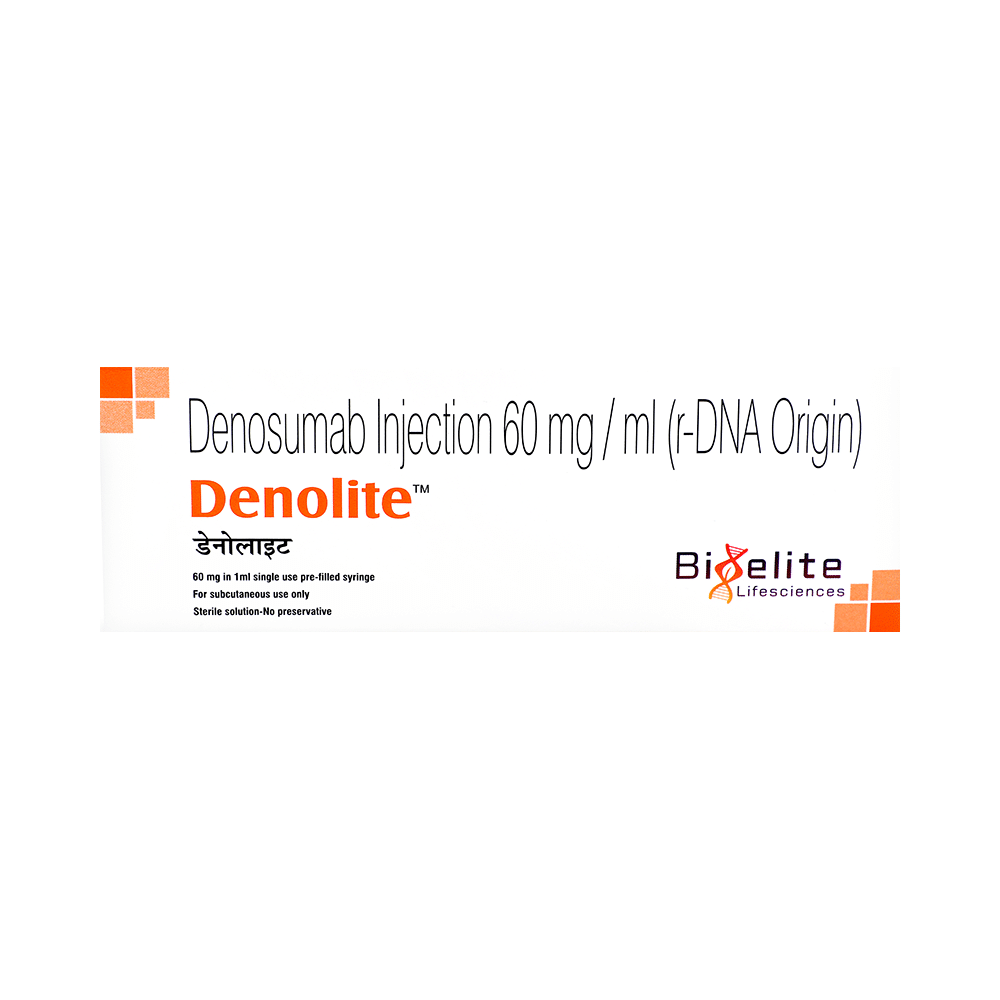
Denolite Injection

Nuclasta 60mg Injection
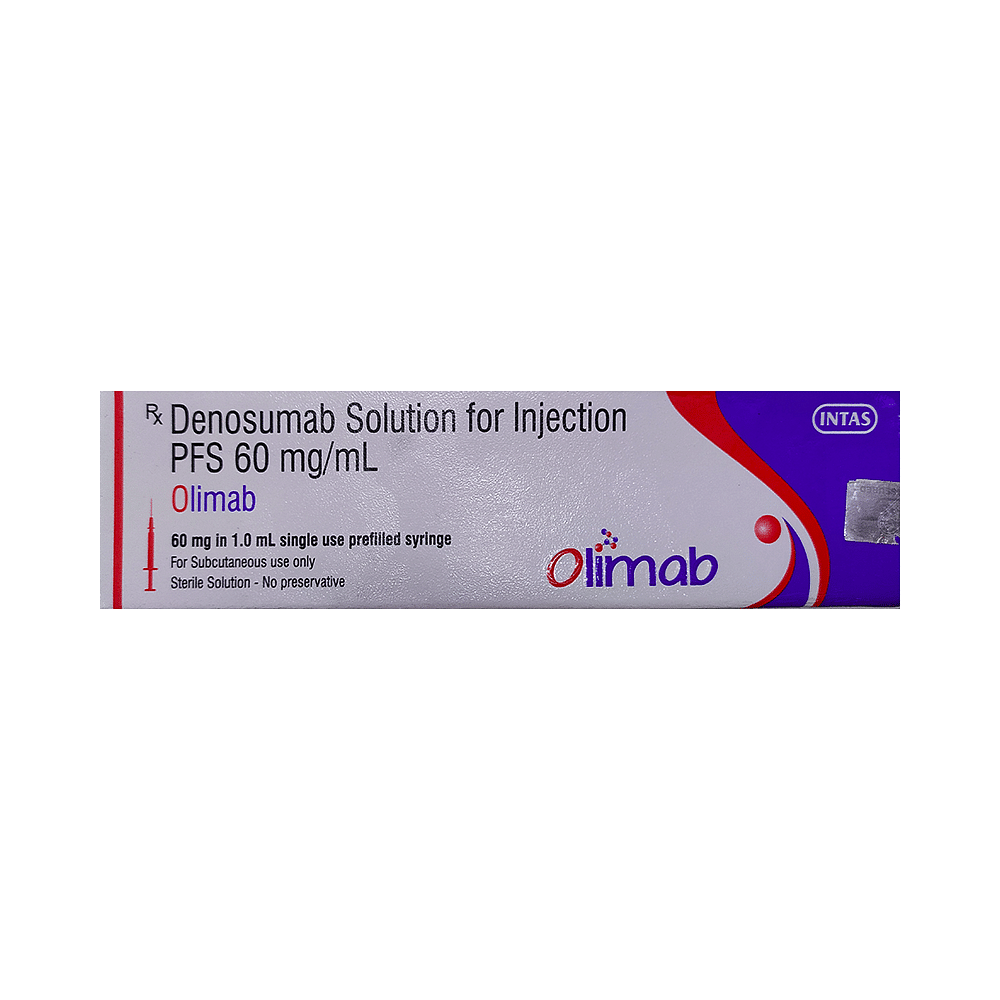
Olimab 60mg Injection
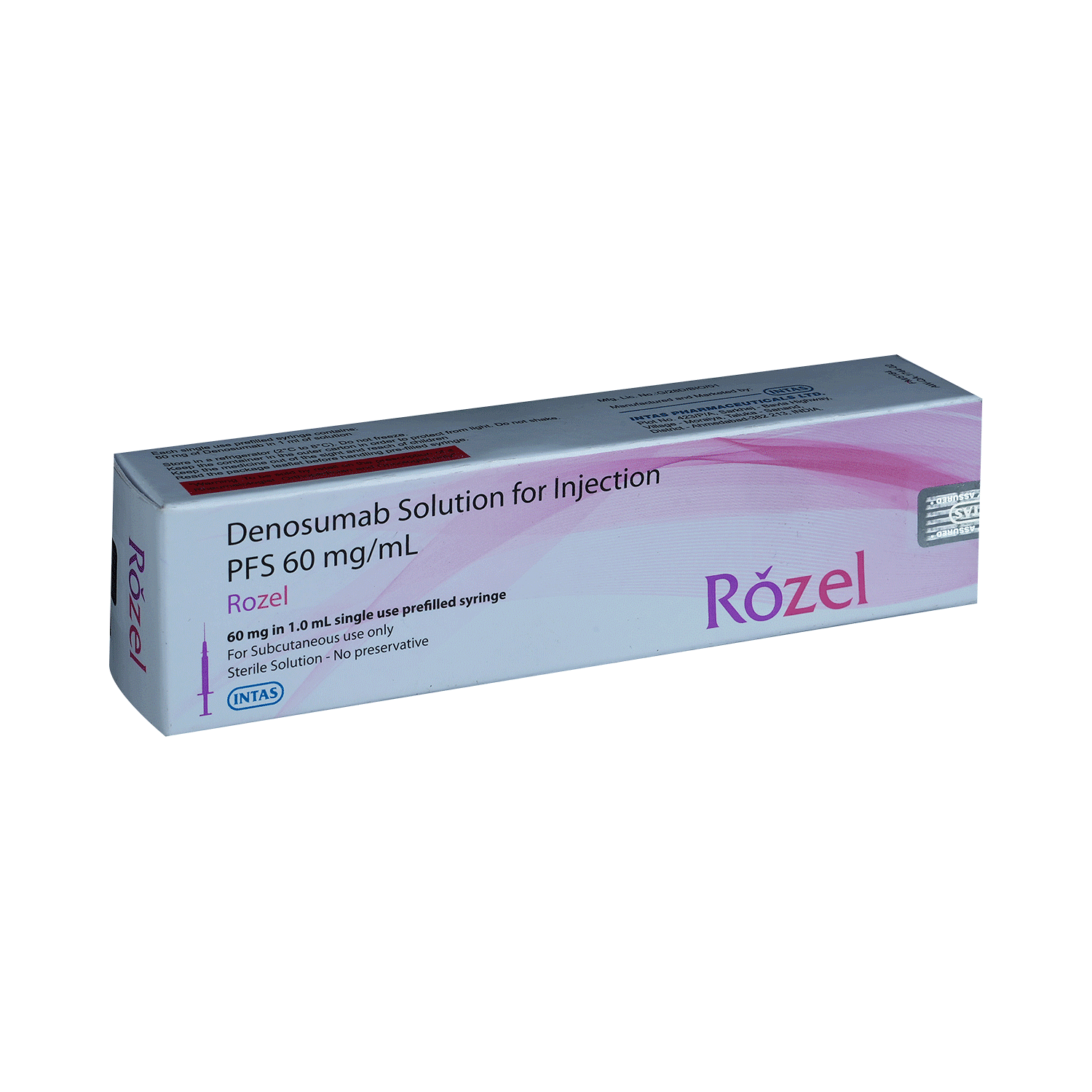
Rozel Injection

Denmab 60mg Injection

Ogain 60mg Injection
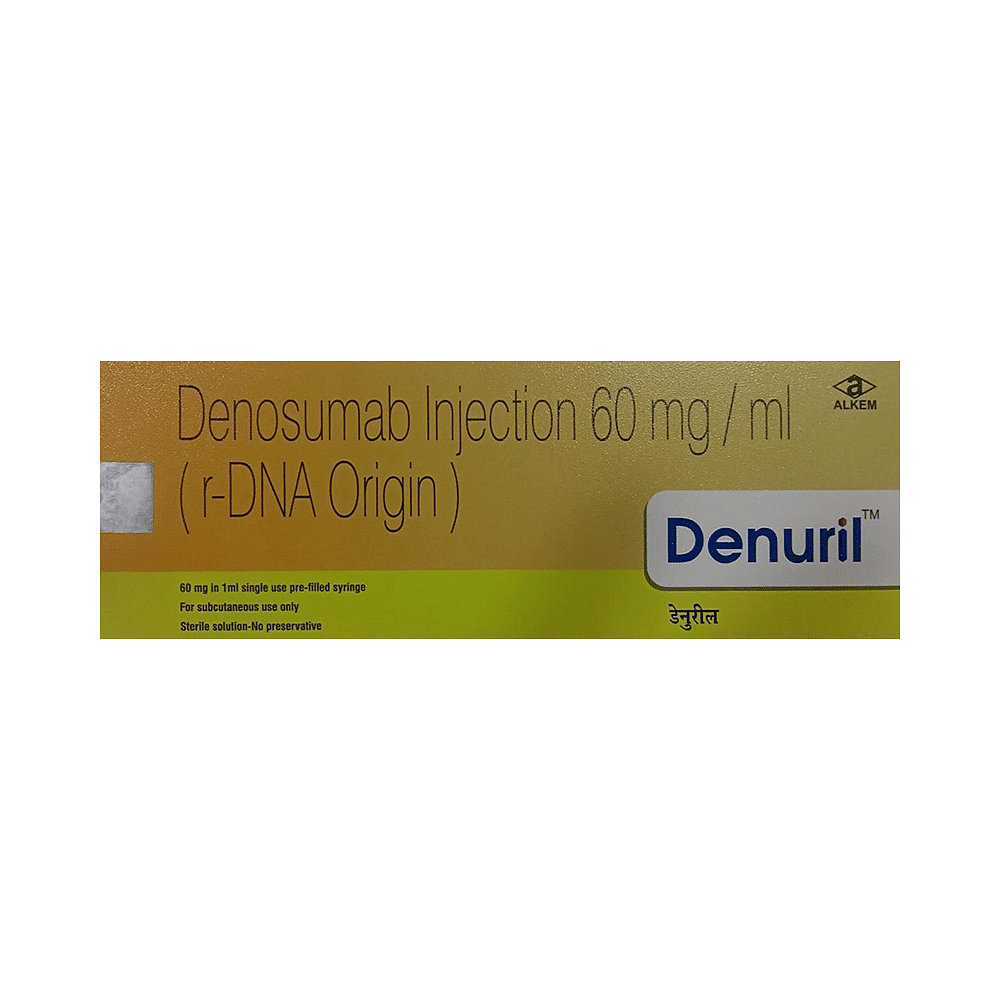
Denuril Injection
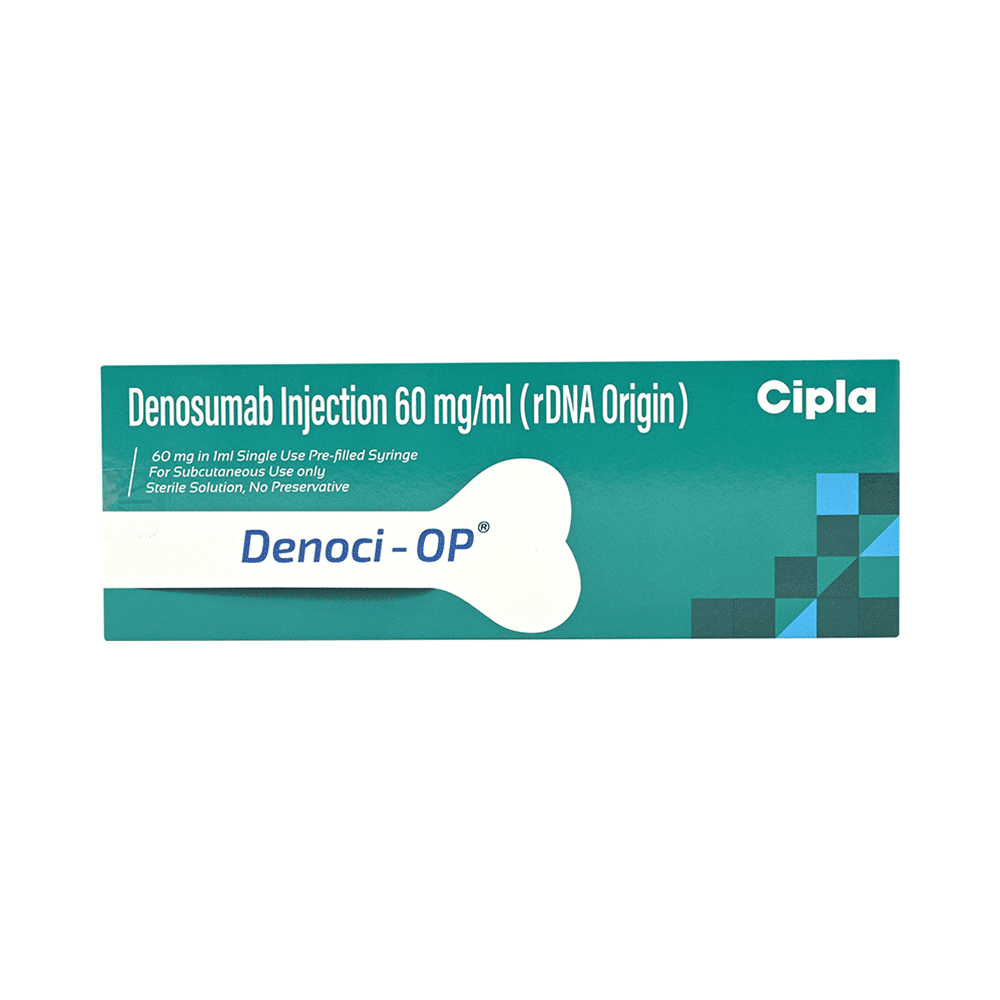
Denoci-OP Injection
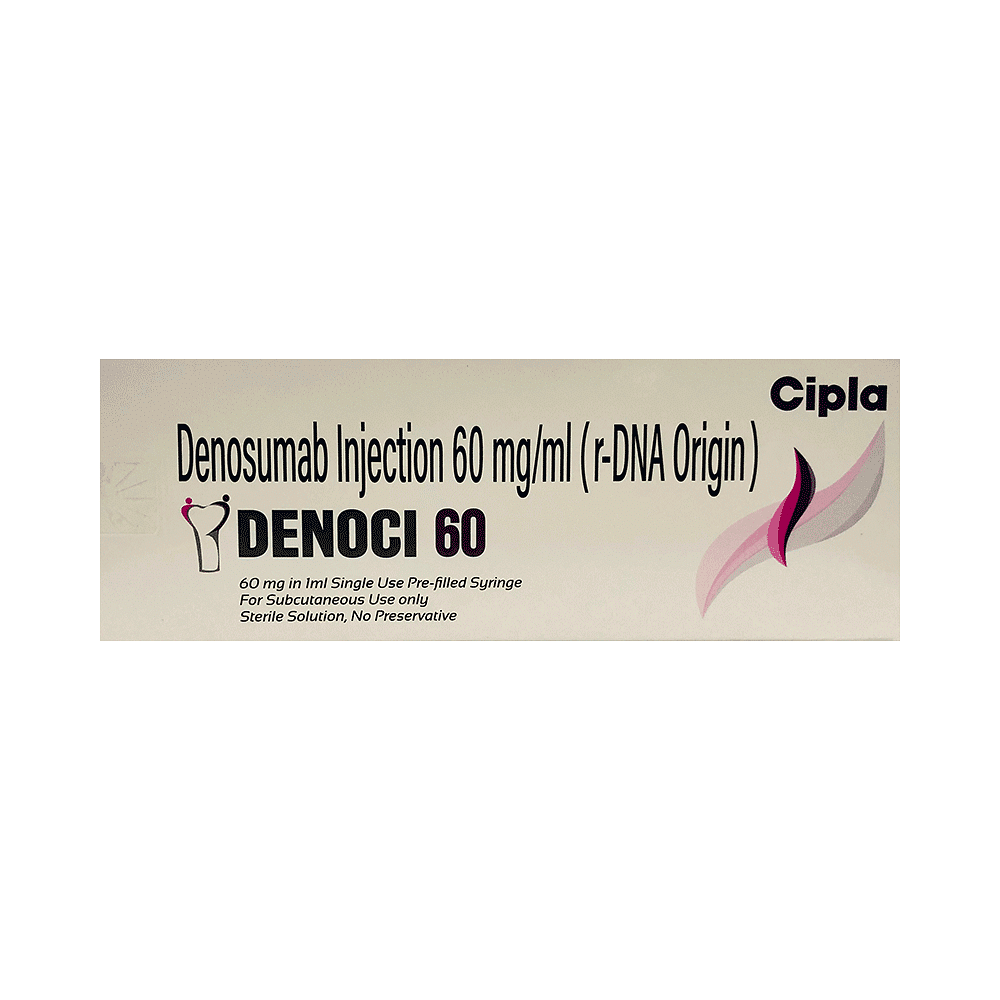
Denoci 60 Injection

Esentra 60mg Injection
Frequently asked questions
What is the recommended duration of treatment with Deninta SC Injection?
The optimal duration of treatment for osteoporosis with Deninta SC Injection varies from patient to patient and depends on their response and tolerability to the medication. Regular assessments, especially after 5 years of use, help determine the best course of treatment.
Is hair loss a side effect of Deninta SC Injection?
Yes, hair loss is a common side effect of Deninta SC Injection, but it does not affect everyone. If you experience concerns about hair loss while taking this medication, discuss them with your doctor.
Is Deninta SC Injection a chemotherapy drug?
No, Deninta SC Injection is not a chemotherapy drug. It is a protein (monoclonal antibody) that interferes with another protein to treat bone loss and osteoporosis by making bones stronger and less likely to break.
How is Deninta SC Injection administered?
Deninta SC Injection is given as an injection by a healthcare professional, typically once every 6 months. Your doctor may also recommend taking calcium and vitamin D supplements concurrently with this medication.
Can pregnant women take Deninta SC Injection?
No, pregnant women should not take Deninta SC Injection. If you can become pregnant, use an effective method of birth control during treatment and for at least 5 months after the last dose.
How should Deninta SC Injection be stored?
Deninta SC Injection should be refrigerated at temperatures between 36°F to 46°F (2°C to 8°C) in its original carton. After removal from the refrigerator, it should be kept at room temperature (up to 77°F or 25°C) in the same carton and used within 14 days.
Is osteonecrosis of the jaw a potential side effect of Deninta SC Injection?
Yes, osteonecrosis is a rare but possible side effect of Deninta SC Injection. To minimize this risk, maintain good oral hygiene and schedule regular dental check-ups while taking this medication. If you experience symptoms such as loose teeth, discharge, pain or swelling, or non-healing sores in your mouth, contact your doctor and dentist immediately.


